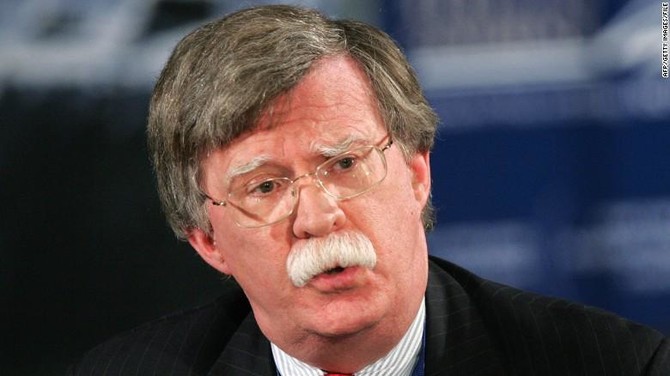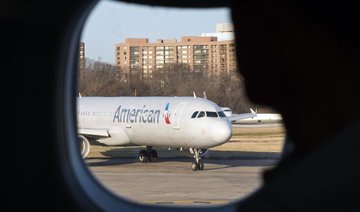JEDDAH: In order for Qatar to stop supporting the Muslim Brotherhood, the US must declare it a terrorist organization, said former US Ambassador to the UN John Bolton.
“The Saudis have picked on Qatar in particular because of its support for the Muslim Brotherhood, but I think also they’re worried about Qatar’s tilt toward Iran,” he told Breitbart News on Wednesday.
Saudi Arabia wants a “united Sunni Arab community” in the Middle East, Bolton said, adding: “Qatar’s response is, ‘Well, what are you picking on us for? Because of the Muslim Brotherhood? The United States hasn’t declared the Muslim Brotherhood a terrorist organization and neither have we, so why are we any different from you?’”
He said the US should “do what it should’ve done anyway. Let’s declare the Brotherhood a terrorist organization. Having done that, we turn back to Qatar and say, ‘Now you follow suit’.”
Bolton urged the US to make full use of the outcomes of the Riyadh Summit upon President Donald Trump’s visit to Saudi Arabia in May, which concluded with the inauguration of a pan-Arab, pan-Muslim center against terrorism.
“Give all these governments the cover they need to cut off the sources of terrorist financing,” Bolton said, including the Qatari royal family.
Although Saudi Arabia declared the Brotherhood a terrorist group in 2014, he believes it is a “complicated organization; not every part of it is devoted to the support of terrorism. Some of them do humanitarian work and so on. A declaration that the entire Brotherhood is a foreign terrorist organization would actually buttress the cause of the jihadis.”
Excluding some affiliates and components of the Brotherhood from the designation would be a better option, he said, adding: “Just declare part of it a terrorist organization. We’ll deal with the rest of it later.”
Iran and the IRGC
Meanwhile, Bolton said the US should also add Iran’s Revolutionary Guard Corps (IRGC) to the list of terrorist groups, because “that’s fundamentally what it is.”
Tehran’s objective is “to link up from Iran, through the Baghdad government in Iraq, to the Assad regime’s regular forces in Syria and the Hezbollah terrorists who are there in Lebanon,” Bolton warned.
He said Tehran is trying to create “an arc of control that lays the foundation for the next struggle in the Middle East, against the Sunni coalition led by the Saudis.”
He added that the Obama administration was “entirely comfortable” with that, as the situation was consistent with its view that Iran is a “normal kind of nation; we’ll just talk them out of their nuclear weapons and then everything will be fine.” Bolton said Tehran has a different take on this issue.
To prevent it from creating that arc of control, Bolton proposed the creation of a new state that is secular yet demographically Sunni, partially paid for by Saudi Arabia.
“This is part of the bigger picture of how we deal with Iran, which is continuing to pursue nuclear weapons along with its friends in North Korea, and continuing to support terrorism around the world,” he said.
“That struggle with Iran is something that was just absent from the radar screen in the Obama administration, but it’s going to come to the fore again once ISIS (Daesh) is defeated.”
On Sunday, Iraq declared victory against Daesh in Mosul after a grueling months-long campaign, dealing the biggest defeat yet to the terrorist group.
Bolton said having an active strategy is a must. “It’s not enough to kind of wake up every day and say, ‘Well, gee, what problem do we have now?’ You have to have a strategy.”
He said combating terrorism and tackling the threat of “the world’s principal state sponsor of terrorism, which is Iran,” is a critical strategy that should be developed urgently. This requires advancing US objectives and Arab unity, he added.
















